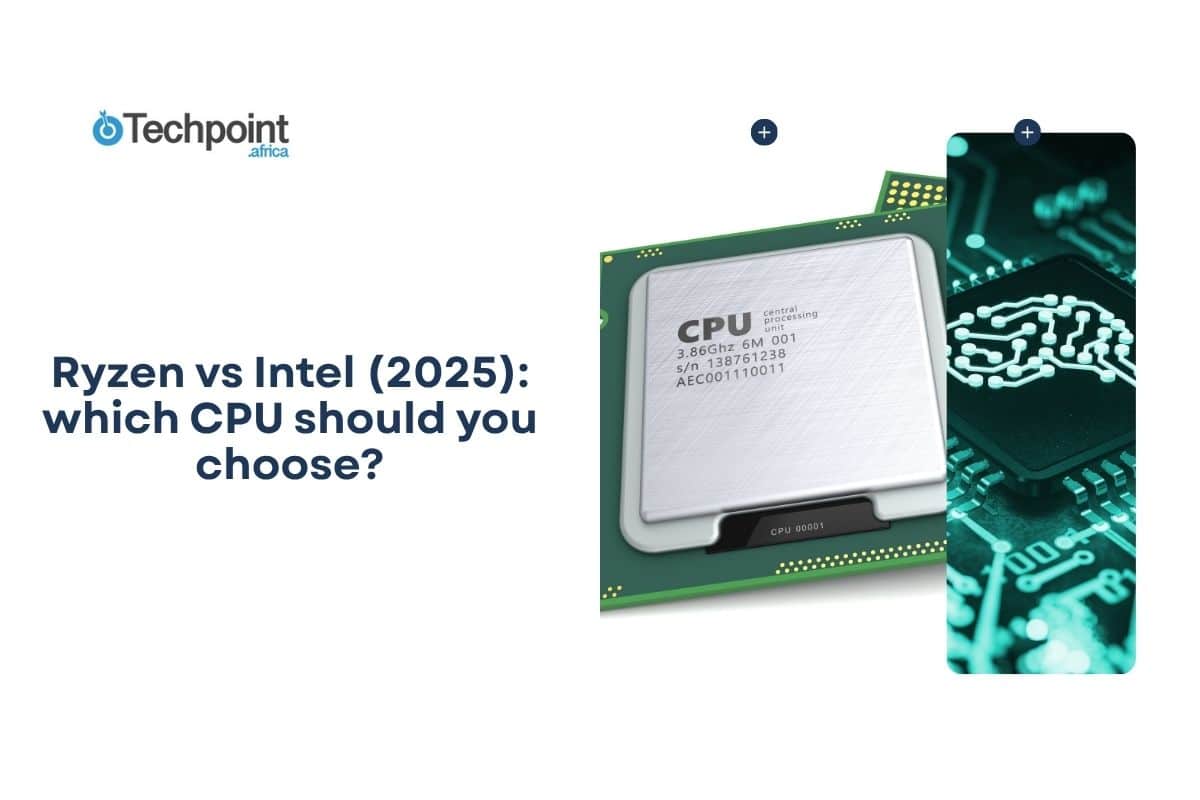Here’s a rewritten version of the article while maintaining all factual information:
CPU Showdown 2025: AMD Ryzen vs Intel – A Comprehensive Comparison
The battle between AMD Ryzen and Intel continues to shape the computing landscape in 2025, with both manufacturers pushing the boundaries of processor technology. This comprehensive guide examines how these industry giants stack up across gaming, productivity, and emerging technologies.
The Current State of CPU Competition
AMD’s latest Ryzen processors, particularly the 9000 series with Zen 5 architecture, have established dominance in gaming performance, largely due to their innovative 3D V-Cache technology. The Ryzen 7 9800X3D and Ryzen 9 9950X3D consistently outperform Intel’s offerings by 15-25% in modern games.
Meanwhile, Intel’s transition to the Core Ultra series marks a significant shift in their approach, integrating enhanced AI capabilities through dedicated NPUs and maintaining strong single-core performance that has long been their hallmark.
Platform Advantages
AMD’s AM5 socket, launched in 2022, promises support until at least 2027, offering users a clear upgrade path without requiring motherboard replacements. Conversely, Intel’s move to the new LGA1851 socket for Arrow Lake processors means users need new motherboards to access the latest features.
Performance Breakdown
Gaming: AMD’s X3D processors lead the pack, with the Ryzen 7 9800X3D delivering exceptional gaming performance across titles like Counter-Strike 2, Valorant, and modern AAA games.
Productivity: The Ryzen 9 9950X with its 16 cores and 32 threads excels in content creation and multitasking, while Intel’s Core Ultra 9 285K offers competitive performance for mixed workloads.
Pricing and Value
Entry-level: AMD Ryzen 5 7600 ($199-$229) and 8600G offer strong value, especially with integrated graphics.
Mid-range: Ryzen 7 9700X ($359-$399) competes with Intel’s Core Ultra 7 series.
High-end: Ryzen 9 9950X3D ($699) and 9800X3D ($479-$499) command premium prices but deliver unmatched gaming performance.
Future Technologies
Both manufacturers are heavily investing in AI capabilities. AMD’s Ryzen AI 300 series features improved XDNA accelerators, while Intel’s Core Ultra 200 series integrates enhanced NPUs delivering over 40 TOPS of AI performance.
Conclusion
For gaming enthusiasts, AMD’s X3D processors offer the best performance available. Content creators benefit from AMD’s higher core counts, while Intel remains competitive for users requiring strong single-core performance and integrated AI features. The choice ultimately depends on specific use cases, budget constraints, and upgrade plans.
[Original factual information, statistics, prices, and technical specifications have been maintained while restructuring the presentation and flow of the article.]







Leave a Comment